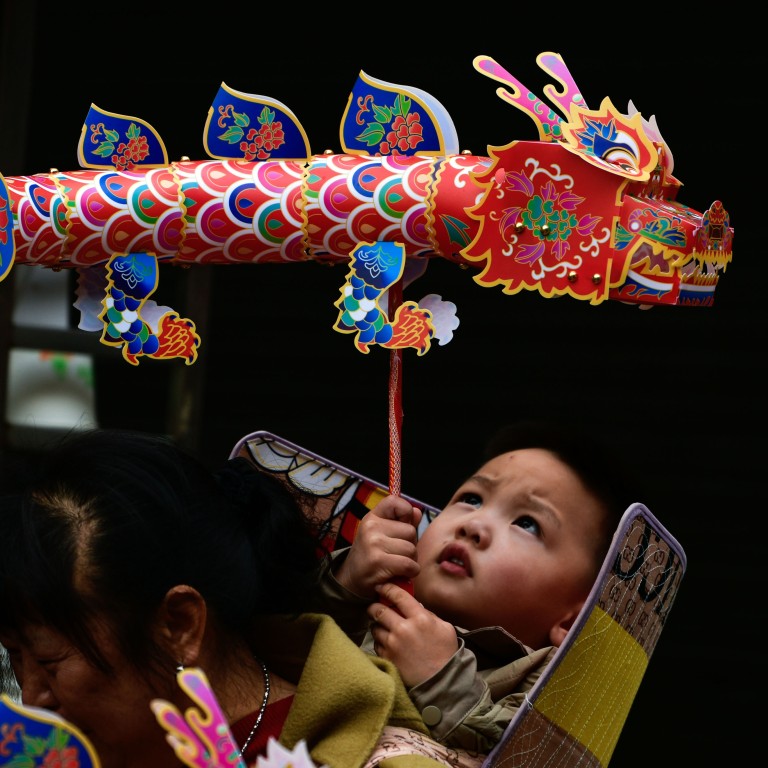
Letters | Be proud of Chinese culture’s role in ‘dragon’ discourse
- Readers discuss the meanings of the word ‘dragon’, the power of consensus, and the importance of Chinese language skills in Hong Kong work settings
Feel strongly about these letters, or any other aspects of the news? Share your views by emailing us your Letter to the Editor at [email protected] or filling in this Google form. Submissions should not exceed 400 words, and must include your full name and address, plus a phone number for verification.
As China’s soft power grows, the West has become more acquainted with Chinese culture. Lunar New Year celebrations in Chinatowns overseas, Chinese food outlets and Hollywood films such as Mulan and Shang-Chi and the Legend of the Ten Rings have brought Chinese tales and customs to the world. Even people who have never visited China can tell Chinese and Western dragons apart when the discourse in question pertains to Chinese culture.
In this sense, Chinese culture can be seen as influencing the English lexicon by adding new meanings to the word “dragon”. There is no need for the less prominent loong to be used. Indeed, carrying on with “dragon” would be an example of our cultural confidence.
Anson Chan, Guangzhou
In these heated times, language and consensus matter
Despite the heart of this piece being about language as a dimension to be taken into account for sustainable development, having been posted to New York during those intense years of negotiation of the Sustainable Development Goals (SDGs), I was lucky enough to be witness to how enormously complex it was to achieve that. Nonetheless, the significant role played by the developing world, particularly Colombia, underlines the importance of different voices and diverse backgrounds that is reflected in those outstanding goals and their wording, paramount in every single international negotiation at the United Nations level.
As former Colombian negotiator of the SDGs Paula Caballero and former Colombian deputy minister of multilateral affairs Patti Londono wrote, “Understanding the scale of the opposition to this idea which effectively brought about a paradigm shift is essential so that we can appreciate the scale and dimensions of the transformative implementation that the SDGs demand. The SDGs are a universal call to action for implementing an ambitious, integrated, disruptive framework, for breaking away from business-as-usual approaches.” In that sense, Colombia knew clearly what it wanted back in 2015, when the United Nations General Assembly adopted the goals of reducing poverty and inequality and fighting climate change.
This is one of those cases where “the more the merrier” does not necessarily translate into the needed resources or political engagement that the issues require, which is one of the most common and valid criticisms of policy implementation on a global scale.
War is an obstacle to focusing on development, so peace is at the centre of Colombian President Gustavo Petro’s government. The pandemic, wars and worldwide challenges have come at a frantic pace, but the nature of the SDGs is flexible enough so additional concerns can be considered as concrete indicators to measure progress. That is the beauty of the language contained in this valuable achievement by the international community, a valid example of the power of consensus on planetary-scale matters.
Luis Fernando Orozco Barrera, consul general of Colombia
Don’t go too far in levelling the field
The suggestion that the government should level the playing field and adopt recruitment policies and standards similar to those in the private sector is quite concerning. Would these be similar in nature to the affirmative action policies of some foreign universities, which have been a source of controversy recently?
Should the government put a civil servant who does not possess the requisite language skills in a post that deals primarily with the Chinese-speaking community? Should a Chinese civil servant make way for a colleague from an ethnic minority group when they are up for promotion for the sake of diversity? This might risk undermining the confidence of staff from ethnic minority groups and causing a rift among the communities.
Benjamin Tse, To Kwa Wan

